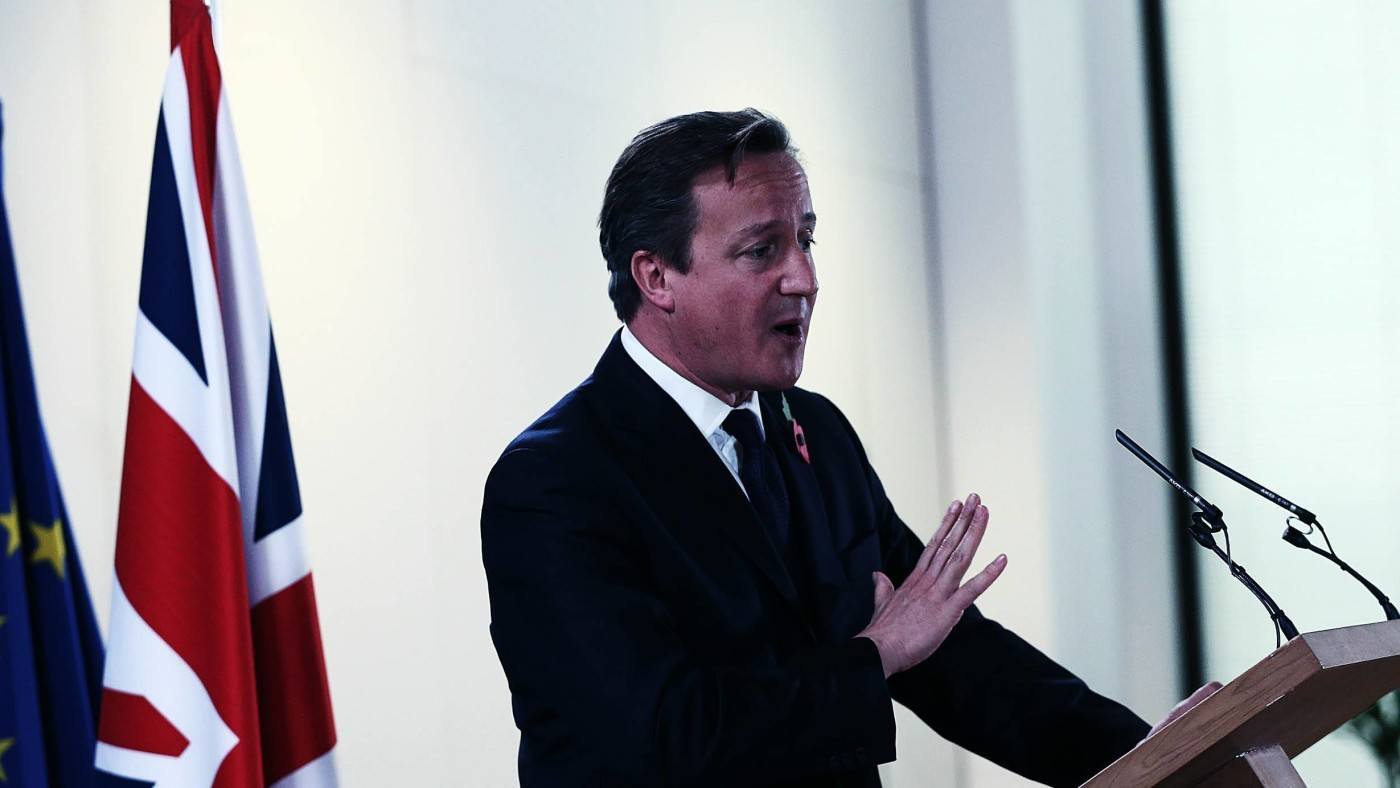Time is running out for the Prime Minister. Next month he intends to take home a deal for a renegotiated relationship on Britain’s EU membership, ahead of the in-out referendum.
But there is one major sticking point in his talks with other EU leaders: the government’s proposal to restrict in-work benefits for EU migrants until they have lived and contributed to the UK for four years. Other EU leaders decry it as discriminatory; he argues it is fair and necessary to bring down migration. The public agree: more than four fifths support the reform.
So how might the PM extricate himself from this mess? Here’s the rundown of five of the most plausible options currently being talked about.
- Apply a residency test
This much is clear: European leaders don’t like their citizens being discriminated against. So one proposal in the mix is for the UK to curb benefits for migrants and Brits alike, with 18-22 year olds also facing restrictions on in-work benefits. But this won’t prove politically popular, and the rumoured attempt to mitigate the blow by providing a “social payment” to compensate young Brits may also be considered discriminatory under EU law.
- Redefine workers
One proposal doing the rounds is to remove ‘worker status’ from low-wage EU migrants. These migrants could therefore face cuts to their in-work benefits, as they would no longer be considered workers under EU law. Apart from the legal issues, the problem here is that it would only apply to a small number of EU migrants – those earning less than £7000 a year according to some reports – so may be seen as too far a climbdown by the PM.
- Limit benefits for unemployed EU migrants
Restricting benefits for EU jobseekers – as opposed to workers – is far more likely to receive support from EU leaders. While there are already some limits in place, there is space for further changes: for instance by tightening the rules on when EU migrants retain their worker status – and so continue to get full access to UK benefits – after they lose their jobs, as we at IPPR have proposed. But again this still might not be enough for the PM given his original commitment on in-work benefits.
- Hope for the European Commission to save the day
Some reports have suggested that a new labour mobility package being developed by the European Commission – but not yet published – might solve the PM’s problems. It’s true that it probably will help to resolve the issue of child benefit payments being paid to EU migrants with children abroad. But otherwise most of the relevant proposals being discussed by the Commission focus on the rules for contributory unemployment benefits – not so relevant for the UK, which has a weak contributory system. The chances are this won’t be enough to satisfy the PM.
- Pull the emergency brake
Other reports have resurrected the proposal for a mechanism allowing for an ‘emergency brake’ on EU migration. This might be feasible to negotiate, but the devil is in the detail. How will it be decided that the brake can be pulled? Concrete evidence of pressures on the UK labour market or welfare system might be hard to find. Who will decide when the UK can pull the brake? If it’s the Commission then that might not go down too well in Britain. How high will the bar be set? If it’s too high then the UK will never be able to use it; if it’s too low it could facilitate the de facto end of free movement, which won’t be accepted by other EU leaders. And what will happen once the emergency brake is pulled? Restrictions on labour market access may be tricky to negotiate, while the latest proposal being discussed today – limits on benefits – may not be substantial enough to make a difference to numbers.
So what will be the outcome of the negotiations? There are no clear answers. Like with most EU negotiations, there will have to be a compromise of some sorts – though whether it will be enough to satisfy the Prime Minister and the public is another question entirely.


